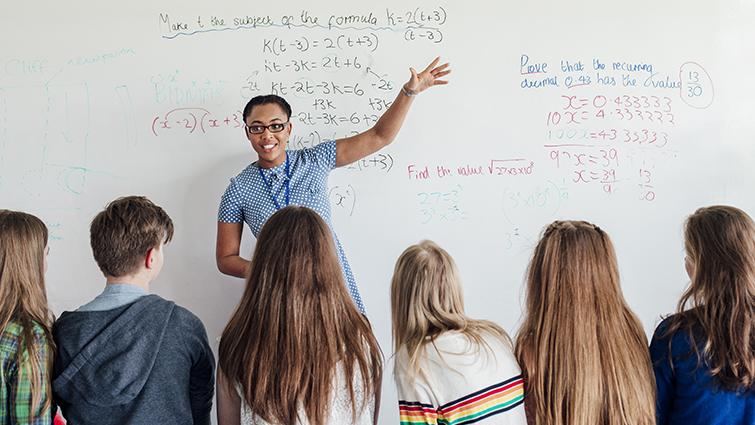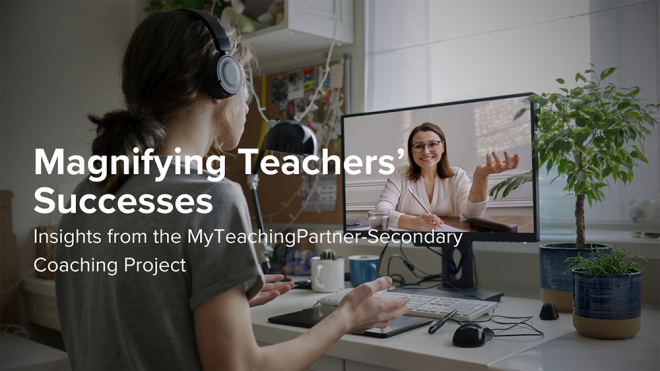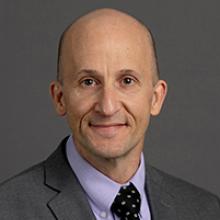Scaling an Evidence-Based Instructional Coaching Program for Teachers

One way to improve K-12 education outcomes is to scale-up programs that have rigorous evidence of effectiveness. This AIR-led project focused on a teacher professional learning program called MyTeachingPartner-Secondary. Prior to the project, the program had already demonstrated positive impacts on student achievement in two randomized controlled trials.
With support from the Education Innovation and Research program administered by the U.S. Department of Education, the project used a multi-prong strategy to expand the use of the program and boost awareness of it and its distinctive features. It also generated rigorous evidence to inform improvements and examine program impacts.
Expanding Use of the Program
AIR built a partnership that included the program developer, Teachstone, and 49 schools across 15 states. From 2017 to 2023, the partnership expanded the number of teachers and instructional coaches who experienced the program. Most participated for two years, and a final group participated in winter and spring 2023.
Boosting Awareness of the Program and How It Works
The partnership included Learning Forward, a professional association devoted to those who work in educator professional learning. To spread knowledge of the program among professionals in K-12 education, Learning Forward collected stories about participants' experiences and disseminated them to members and nationally.
The participants highlighted several features that distinguished the program from other coaching programs. For example:
- The coach and teacher follow a predictable, transparent, time-efficient process
- The coach uses video clips of the teacher's successes in the classroom, rather than pointing out weaknesses.
To share participants' experiences with the program, the partnership created several resources:
Digital Story: Magnifying Teachers' Successes: Insights from the MyTeachingPartner-Secondary Coaching Project. In this digital story created by AIR, readers can learn more about the MTP-S project and hear directly from participants through short video clips and quotes.

Briefs. In these field briefs, Learning Forward authors highlight the strengths of the MTP-S program and share perspectives from program participants.
Professional Journals. Articles in Learning Forward's journal include an interview with a leading researcher and co-designer of the program and essays by coaches about how using video as part of the coaching can motivate teachers to improve their skills.
Refining the Scaling Supports
Scaling high-quality instructional coaching programs is a known challenge. To support implementation on a large scale, Teachstone trained, monitored, and supported local coaches, who were selected by the participating districts. Teachstone refined these scaling supports during the project, using internal data as well as implementation data gathered by AIR.
Articles in Phi Delta Kappan and The School Administrator document fidelity of implementation and explain the strategies Teachstone uses to ensure quality (e.g., routines for 1-1 support for meetings between Teachstone staff and coaches).
Rigorously Evaluating Program Implementation and Impact
AIR and Teachstone launched a randomized controlled trial in fall 2021, assigning half of the volunteering teachers to do the program for two years (2021-22 and 2022-23) on top of their normal activities.
The trial was difficult to implement. Due to the pandemic, the trial enrolled fewer teachers than planned, making the trial less sensitive to impacts. In addition, the program was not fully implemented, especially during the Delta and Omicron outbreaks, making the program less likely to have impacts.
The September 2023 evaluation report documents implementation and shows that the program had a statistically significant impact only on one measured outcome: teachers' enthusiasm about teaching. That finding is the focus of the brief, Can a Teacher Professional Learning Program Reduce Teacher Burnout?
Enthusiasm About Teaching

Upcoming report: To report on the program's impact on student achievement at the end of the two-year program, the researchers are collecting and analyzing spring 2023 achievement data. They expect to report those results in summer 2024.


